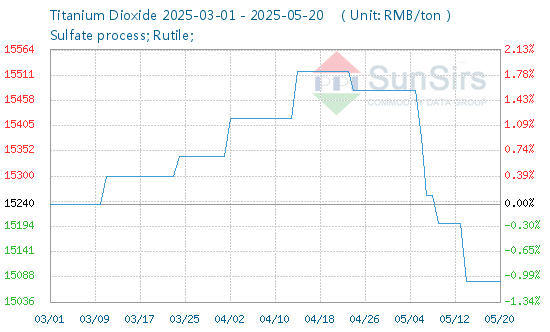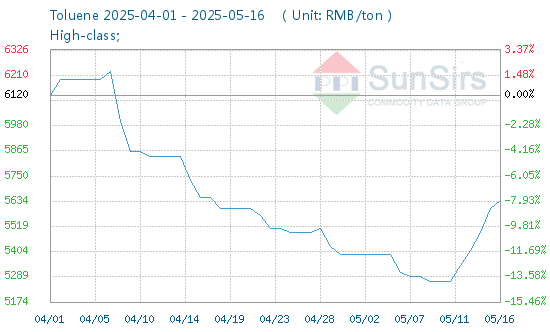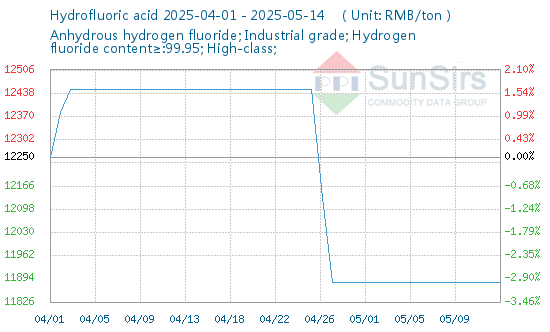

Thiourea, a versatile chemical compound, has become increasingly vital across various industries globally. Understanding its market dynamics, including pricing, supply, and demand, is crucial for businesses and investors alike. This comprehensive guide delves into the world of thiourea, offering in-depth insights into its applications, market trends, and the factors influencing its prices. As we explore the importance of thiourea in different sectors, the role of reliable thiourea suppliers becomes undeniably significant in sustaining industrial growth and innovation.
When it comes to the world of chemical compounds, thiourea stands out as a noteworthy player. Commonly recognized among thiourea suppliers and users for its versatility, thiourea is a compound with the formula SC(NH2)2. This colorless crystalline material is often found in the form of white powder, soluble in water, and has a characteristically bitter taste.
The uses of thiourea are diverse and cater to various industries. In the agricultural sector, it finds its place as a reliable source for fertilizers, helping in the synthesis of plant nutrients. In the world of photography, thiourea is a key ingredient in silver polishing agents, crucial for the production of high-quality photographic materials. The pharmaceutical industry also benefits from thiourea, where it's used in the synthesis of certain medications, playing a pivotal role in advancing healthcare solutions.
Moreover, thiourea serves a significant purpose in the textile industry. It acts as a dyeing auxiliary, assisting in the process of fabric dyeing and ensuring the vibrant and lasting quality of textile products. This versatility not only underscores the importance of thiourea in various sectors but also highlights the growing demand for reliable thiourea suppliers who can cater to the diverse needs of these industries.
It's essential for businesses seeking thiourea to understand these applications, as it helps in making informed purchasing decisions. Knowing the specific uses and the industries it serves can guide buyers towards selecting the right type and quality of thiourea, ensuring optimal results for their specific applications.
| Name | Thiourea |
| Synonyms | Sulfourea, Isothiourea, Thiocarbamide, Sulfocarbamide, Carbamoylsulfamic Acid, etc. |
| CAS Number | 62-56-6 |
| EINECS | 200-543-5 |
| Chemical Formula | CH4N2S |
| Molecular Weight | 76.12 |
| InChI | InChI=1/CH4N2O4S/c2-1(4)3-8(5,6)7/h(H3,2,3,4)(H,5,6,7) |
| InChIKey | UMGDCJDMYOKAJW-UHFFFAOYSA-N |
| Density | 1.405 |
| Melting Point | 170-176 °C (lit.) |
| Boiling Point | 263.89°C (estimate) |
| Water Solubility | 13.6 g/100 mL (20 ºC) |
| Solubility in Water | Soluble at 20 °C, 137g/L |
| Refractive Index | 1.5300 (estimate) |
| Acidity Coefficient | -1.0 (at 25℃) |
| pH Value | 6-8 (50g/l, H2O, 20℃) |
| Storage Conditions | Store below +30°C. |
| Stability | Stable. Incompatible with strong acids, bases, oxidizers, metal salts, proteins, hydrocarbons. May react violently with acrolein. |
| Appearance | Crystal |
| Specific Gravity | 1.406 |
| Color | White to almost white |
| Odor | Odorless |
| Merck | 14,9367 |
| BRN | 605327 |
| Physical and Chemical Properties | White or light yellow lustrous flake, columnar, or acicular crystals with a bitter taste. Soluble in water and ethanol, almost insoluble in ether. |
| Hazard Symbols | Xn - Harmful, N - Dangerous for the environment, Xi - Irritant |
| Risk Phrases | R22 - Harmful if swallowed, R40 - Limited evidence of a carcinogenic effect, R51/53 - Toxic to aquatic organisms, may cause long-term adverse effects in the aquatic environment, etc. |
| Safety Phrases | S36/37 - Wear suitable protective clothing and gloves, S61 - Avoid release to the environment. Refer to special instructions/safety data sheets, etc. |
| Hazardous Goods Transport Number | UN 2811 6.1/PG 3 |
| WGK Germany | 2 |
| RTECS | YU2800000 |
| TSCA | Yes |
| Customs Code | 29309070 |
| Hazard Class | 6.1 |
| Packing Group | III |
| Upstream Raw Materials | Barium Sulfide, Hydrogen Sulfide, Sulfuric Acid, Calcium Cyanamide, Hydrochloric Acid, Barium Sulfate |
| Downstream Products | 2-Aminothiazole, Thiosemicarbazide, Thiazinone, Dithiocyanomethane |
The significance of thiourea extends far beyond its basic definition, permeating various industries with its indispensable applications. Each industry values thiourea for unique reasons, underpinning its status as a vital chemical in the modern world. Let's delve into how thiourea is crucial across different sectors.
In agriculture, thiourea is a game-changer. It's used as a germination stimulant, playing a critical role in enhancing crop yields and improving food production. This application is especially important in regions facing agricultural challenges. By boosting plant growth, thiourea helps farmers maximize their output, making it a valuable asset in the agricultural supply chain.
The pharmaceutical industry also reaps the benefits of thiourea. It's instrumental in the synthesis of certain drugs, particularly those used in the treatment of thyroid disorders and hypertension. This makes thiourea not just a chemical compound, but a contributor to public health and wellness.
Thiourea's role in the textile industry cannot be overstated. It acts as a reducing agent in the dyeing process, ensuring that dyes penetrate fabrics effectively. This leads to more vibrant, long-lasting colors in textiles, a key factor in the fashion and apparel industry. Additionally, thiourea is used in the finishing of wool, enhancing the fabric's quality and appeal.
In the realm of metal industries, thiourea finds application in electroplating and as a corrosion inhibitor. Its ability to polish and finish metals is essential in creating high-quality metal products, from consumer electronics to automotive parts.
One of the primary factors affecting the price of thiourea is the cost of raw materials. The production of thiourea involves several key ingredients, and fluctuations in their prices directly impact the overall cost. For instance, an increase in the cost of ammonia or carbon disulfide, two critical components in thiourea synthesis, can lead to a rise in thiourea prices. Such variations are often a result of changes in the global market, availability of resources, and geopolitical factors. As a result, thiourea suppliers must constantly adapt to these changes, affecting the pricing strategies for their customers.
The cost of producing thiourea also plays a significant role in determining its market price. This includes the expenses related to manufacturing facilities, labor, technology, and adherence to environmental and safety regulations. The efficiency of the production process and the scale of operation can influence these costs. Advanced manufacturing techniques and economies of scale can help reduce production costs, potentially leading to more competitive thiourea prices in the market.
The supply chain and logistics involved in delivering thiourea from manufacturers to end-users are critical in determining its final price. Factors such as transportation costs, storage facilities, and handling play a vital role. Furthermore, the complexity of the supply chain, influenced by global trade policies, transportation networks, and logistical efficiencies, can significantly impact costs. Any disruptions or inefficiencies in the supply chain can lead to increased prices for thiourea, reflecting the need for a robust and efficient logistics framework.
The demand for thiourea is significantly influenced by several key industries. Agriculture, pharmaceuticals, and textiles are among the top sectors driving its demand. In agriculture, thiourea's role as a germination enhancer and fertilizer component makes it invaluable. Pharmaceutical applications, especially in drug synthesis, ensure a steady demand from this sector. The textile industry's reliance on thiourea for dyeing and fabric treatment also contributes to its high demand. Each industry's growth and expansion directly impact the demand for thiourea, highlighting its crucial role across various sectors.
Analyzing global demand trends for thiourea reveals interesting insights. There has been a steady increase in demand, particularly from emerging economies where industrial growth is robust. This trend is partly due to increased agricultural activities, industrial development, and advancements in healthcare in these regions. The global market dynamics, including trade policies and economic growth rates, also play a crucial role in shaping the demand for thiourea worldwide.
Emerging technologies have a profound impact on the demand for thiourea. Innovations in agricultural practices, pharmaceutical research, and textile manufacturing techniques can either increase or decrease thiourea usage. For instance, new agricultural technologies that enhance crop yield may increase the use of thiourea-based fertilizers. Similarly, advancements in pharmaceuticals that require thiourea for drug synthesis will boost its demand. Conversely, technologies that offer alternative solutions or more efficient processes may reduce reliance on thiourea. Keeping abreast of these technological trends is essential for thiourea suppliers to anticipate market changes and adapt their strategies accordingly.
The global supply of thiourea is concentrated in several key regions, each holding a significant market share. China, as a major player, dominates a large portion of the market, thanks to its extensive manufacturing capabilities and raw material availability. Other notable regions include parts of Europe and North America, though their market share is comparatively smaller. The distribution of production across these regions affects the global availability and pricing of thiourea, making the geographical aspect a crucial factor in the supply chain.
Environmental regulations play a significant role in the supply of thiourea. Stricter environmental policies, especially in regions like Europe and North America, can impact production processes and costs. Manufacturers must adhere to these regulations, which often involve investment in cleaner technologies and safer waste disposal methods. This can lead to increased production costs and, in turn, affect the supply and pricing of thiourea. It's essential for thiourea suppliers to navigate these regulations efficiently to maintain a steady supply while adhering to environmental standards.
Various supply risks can impact the availability and price of thiourea. These risks include geopolitical tensions, natural disasters, and economic fluctuations that can disrupt production and distribution networks. For instance, a political upheaval in a major producing region can lead to supply shortages, driving up prices globally. Similarly, natural disasters affecting key manufacturing areas can temporarily halt production, leading to supply constraints. These risks necessitate robust risk management strategies among thiourea producers and suppliers to mitigate impacts on supply and maintain stable prices.
International trade policies significantly influence the thiourea market. Tariffs, trade agreements, and export-import regulations play a crucial role in determining the accessibility and cost of thiourea in different markets. For instance, favorable trade agreements between countries can lower tariffs and reduce the cost of thiourea, making it more affordable for importers. Conversely, trade barriers or sanctions can restrict thiourea supply, leading to higher prices. Thiourea suppliers and buyers must stay informed about these policies to navigate the market effectively and make strategic decisions.
Currency fluctuations are another vital economic factor affecting thiourea prices. As thiourea is traded globally, exchange rates can significantly impact its cost. A stronger currency in the producing country can lead to higher thiourea prices for buyers using weaker currencies. Similarly, a weaker producer currency can make thiourea more affordable for international buyers. This aspect underscores the importance of monitoring currency trends for both suppliers and buyers to anticipate changes in thiourea pricing.
Global economic trends also play a pivotal role in shaping the thiourea market. Economic growth or recession in key regions can directly influence the demand and supply of thiourea. For example, a booming economy might increase industrial activities, leading to higher demand for thiourea, whereas an economic downturn could decrease its demand. Additionally, global economic trends can affect investment in industries that use thiourea, further impacting its market dynamics. Keeping a close eye on these trends is essential for anyone involved in the thiourea market.
In the short term, the thiourea market is expected to experience fluctuating prices due to immediate factors such as raw material costs, supply chain dynamics, and current international trade policies. Seasonal demands, especially from key industries like agriculture and pharmaceuticals, might also play a role in short-term price variations. Buyers and thiourea suppliers should be prepared for potential volatility and plan accordingly, keeping a close eye on market indicators and trends.
Looking at the long-term perspective, the thiourea market is poised for gradual growth. This trend is likely driven by consistent demand from established industries and the potential emergence of new applications for thiourea. Innovations in technology and shifts towards more sustainable practices in industries could also influence the demand and supply balance, potentially leading to a steady increase in thiourea prices. Long-term strategies for stakeholders in the thiourea market should focus on adapting to evolving industry needs and technological advancements.
The thiourea market, like any other, is not immune to potential disruptors. Technological breakthroughs, especially those that offer alternatives to thiourea or more efficient production methods, could significantly alter market dynamics. Additionally, environmental concerns and regulations could lead to shifts in production processes or even the development of eco-friendly substitutes. Keeping an eye on these potential disruptors is vital for businesses to stay ahead in the market and adapt to changes swiftly and effectively.

One of the critical challenges in the thiourea market is managing environmental concerns associated with its production. The manufacturing process of thiourea often involves chemicals that can be harmful to the environment if not handled properly. To address these concerns, there is a growing emphasis on developing more sustainable and eco-friendly production methods. This includes investing in cleaner technologies, improving waste management, and complying with stringent environmental regulations. Tackling these environmental issues not only benefits the planet but also helps thiourea suppliers maintain their market position by adhering to global standards.
The thiourea market also presents opportunities in the form of innovations and technological advancements. Research and development efforts aimed at improving the efficiency of thiourea production processes can lead to cost savings and enhanced product quality. Additionally, exploring new applications of thiourea in various industries, such as in advanced materials or as catalysts in chemical reactions, can open up new markets and drive demand. Staying at the forefront of technological advancements is crucial for companies to remain competitive and capitalize on these emerging opportunities.
The versatility of thiourea suggests untapped potential in various markets and emerging applications. New research and development could unveil uses of thiourea in sectors like renewable energy, where it could play a role in solar cell manufacturing or energy storage systems. Another area of potential is in environmental applications, such as water treatment and pollutant removal. Tapping into these emerging markets requires not only innovation but also a deep understanding of market needs and trends, offering substantial opportunities for growth and expansion in the thiourea industry.
Selecting the right supplier is crucial in ensuring a steady and reliable supply of thiourea for your business needs. The decision involves more than just comparing prices; it requires a comprehensive evaluation of several key factors. Here are the primary considerations to keep in mind when choosing a thiourea supplier.
The quality of thiourea is paramount. Look for suppliers who adhere to strict quality control processes and have certifications to back their claims. Consistent quality ensures that the thiourea you receive meets your specific requirements, leading to reliable outcomes in your applications.
A reliable supplier ensures a steady supply of thiourea, minimizing disruptions to your operations. Evaluate their track record in terms of on-time deliveries and their ability to handle fluctuations in demand. Flexibility in supply is also crucial, especially if your business experiences seasonal or unexpected changes in thiourea needs.
Compliance with environmental and safety regulations is essential. This not only reflects the supplier's commitment to sustainable practices but also ensures that your business is not inadvertently exposed to regulatory risks.
While price should not be the only factor, it is undoubtedly important. Evaluate the cost-effectiveness of their offering, ensuring it aligns with your budget and overall value expectations. Be wary of prices that seem too good to be true, as they might compromise on quality or reliability.
Good customer service is a hallmark of a reliable supplier. Consider how the supplier handles inquiries, their responsiveness, and their willingness to provide technical support. A supplier who is proactive in addressing your needs and concerns can be a valuable partner in your business.
In summary, the thiourea market represents a complex yet fascinating intersection of chemistry, industry, and economics. For businesses looking to thrive in this market, partnering with a seasoned and reliable supplier is key. HighMountain Chem, a leading Chinese manufacturer and wholesaler of thiourea, stands out in this regard. With their commitment to quality, innovation, and customer satisfaction, HighMountain Chem is your go-to source for thiourea needs. Discover more about their offerings and how they can propel your business forward at www.highmountainco.com.









